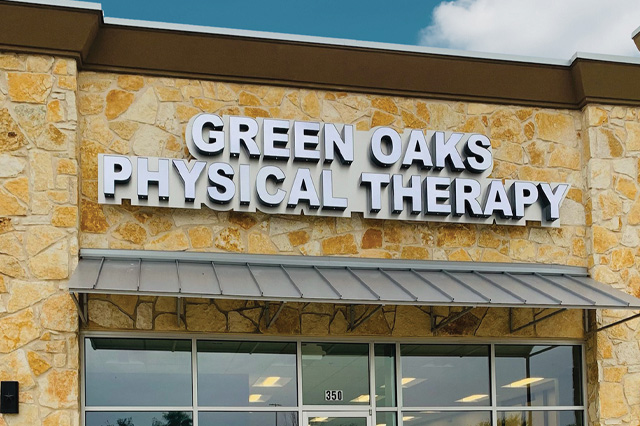Neurological and Stroke Rehabilitation
Physical Therapy for Stroke and Neurological Rehabilitation: A Path to Recovery
Stroke and other neurological conditions can have a profound impact on an individual’s life, affecting mobility, coordination, and overall function. Physical therapy plays a crucial role in the rehabilitation process for stroke and neurological patients, helping them regain lost abilities, improve quality of life, and return to their daily activities. Here we will explore the importance of physical therapy in stroke and neurological rehabilitation, detailing the methods and benefits that make it an essential component of recovery.
Physical Therapy for Stroke and Neurological Rehabilitation: A Path to Recovery
Stroke and other neurological conditions can have a profound impact on an individual’s life, affecting mobility, coordination, and overall function. Physical therapy plays a crucial role in the rehabilitation process for stroke and neurological patients, helping them regain lost abilities, improve quality of life, and return to their daily activities. Here we will explore the importance of physical therapy in stroke and neurological rehabilitation, detailing the methods and benefits that make it an essential component of recovery.
Understanding Stroke and Neurological Conditions
A stroke occurs when blood flow to a part of the brain is interrupted, leading to brain cell damage. This can result in a variety of impairments, including weakness or paralysis on one side of the body, difficulties with speech and swallowing, and problems with balance and coordination. Neurological conditions such as multiple sclerosis, Parkinson’s disease, and spinal cord injuries can also lead to significant physical and functional limitations.
The primary goals of neurological rehabilitation are to maximize functional recovery, improve quality of life, and promote independence. Physical therapy is a cornerstone of this multidisciplinary approach, addressing the specific needs of each patient through individualized treatment plans.
The Role of Physical Therapy in Neurological Rehabilitation
Physical therapists (PTs) specializing in neurological rehabilitation are trained to evaluate and treat movement disorders resulting from stroke and other neurological conditions. Their role involves:
- Comprehensive Assessment: The rehabilitation process begins with a thorough assessment of the patient’s physical condition. PTs evaluate muscle strength, range of motion, balance, coordination, and functional abilities. They also consider the patient’s medical history, cognitive function, and personal goals to create a tailored treatment plan.
- Strength and Mobility Training: Stroke and neurological conditions often lead to muscle weakness and impaired mobility. PTs use a variety of exercises to improve strength and enhance mobility. This includes:
- Resistance Training: To build muscle strength and endurance.
- Flexibility Exercises: To improve the range of motion and reduce muscle stiffness.
- Gait Training: To help patients relearn how to walk, focusing on improving balance, coordination, and the use of assistive devices if needed.
- Balance and Coordination Exercises: Many neurological patients experience balance and coordination issues, increasing their risk of falls. PTs design specific exercises to enhance balance and coordination, such as:
- Stability Training: Exercises that challenge the patient’s balance in a controlled environment.
- Vestibular Rehabilitation: For patients with dizziness and balance problems related to vestibular dysfunction.
- Task-Specific Training: PTs use task-specific training to help patients practice activities of daily living (ADLs). This includes exercises that mimic everyday tasks, such as getting in and out of bed, climbing stairs, and reaching for objects. By practicing these tasks, patients improve their functional abilities and gain confidence in performing daily activities.
- Neuromuscular Reeducation: This involves techniques to retrain the brain and nervous system to improve motor control and function. Methods such as constraint-induced movement therapy (CIMT) encourage the use of the affected limb, promoting neural plasticity and functional recovery.
- Pain Management: PTs also address pain that may result from neurological conditions or the rehabilitation process itself. Techniques such as manual therapy, electrical stimulation, and therapeutic exercises help manage pain and discomfort.
- Patient and Caregiver Education: Education is a vital component of neurological rehabilitation. PTs provide patients and their caregivers with information about the condition, the rehabilitation process, and strategies for managing symptoms and preventing complications. This empowers patients to take an active role in their recovery.
Benefits of Physical Therapy in Neurological Rehabilitation
- Improved Functional Independence: Through targeted exercises and training, patients regain the ability to perform ADLs, enhancing their independence and reducing the need for assistance.
- Enhanced Mobility and Strength: Strength and mobility training help patients overcome physical limitations, enabling them to move more freely and with greater confidence.
- Better Balance and Coordination: Balance and coordination exercises reduce the risk of falls, promoting safety and stability in daily activities.
- Pain Reduction: Effective pain management techniques improve comfort and allow patients to participate more fully in rehabilitation.
- Psychological Benefits: Physical therapy can improve mental well-being by reducing anxiety, boosting confidence, and providing a sense of accomplishment as patients progress in their recovery.
Conclusion
Physical therapy is a vital component of stroke and neurological rehabilitation, offering a pathway to recovery and improved quality of life for patients. Through comprehensive assessments, individualized treatment plans, and a focus on functional training, our physical therapists help patients regain their strength, mobility, and independence. The benefits of physical therapy extend beyond physical recovery, enhancing psychological well-being and empowering patients to reclaim their lives. For those affected by stroke and neurological conditions, physical therapy offers hope, support, and a clear path to a better future.


Request an Appointment
Fill out our online form and we will contact you and schedule your visit.

Find Your Location
17 convenient locations across the Fort Worth and Dallas areas with easy parking.
